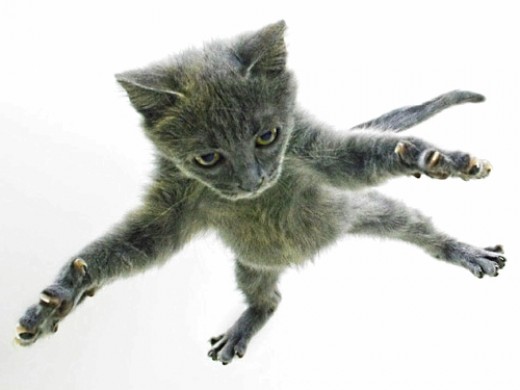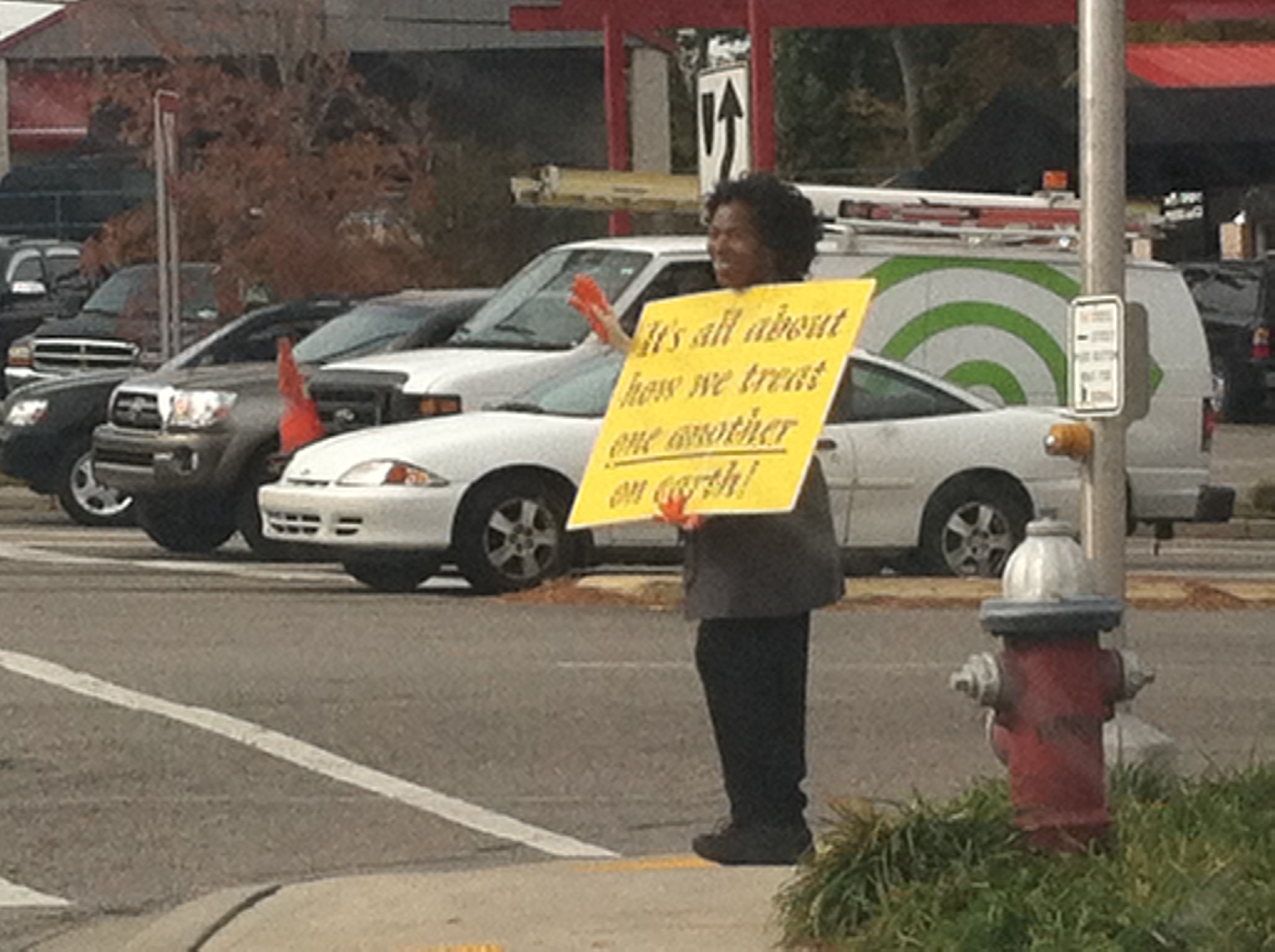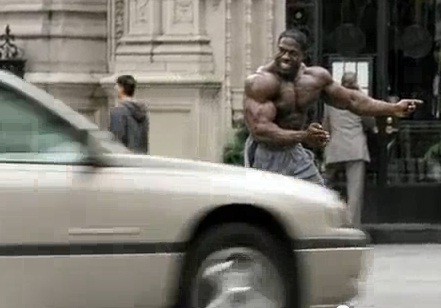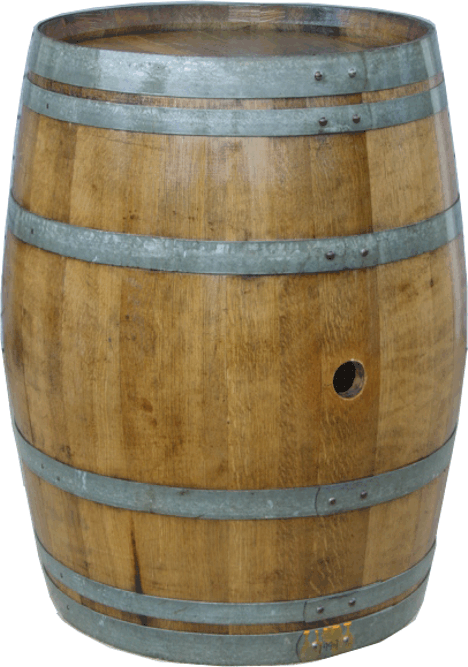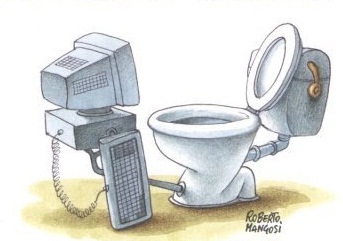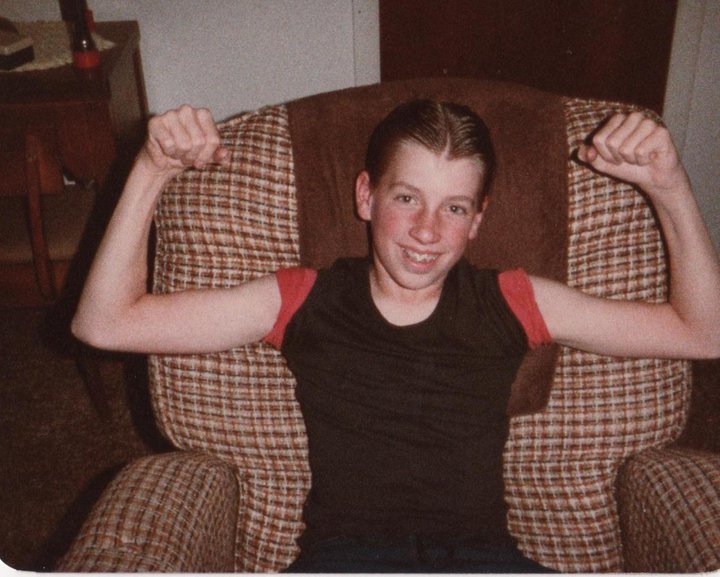Earlier this week, I saw a kitten dart onto a very busy, heavily trafficked street. I knew immediately that this was not going to end well. (You have been warned.)
It’s commonly held that cats have nine lives. I was convinced I was going to see one of hers vanish right before my eyes. In fact, I was shocked the cat did not meet an instant, painful death. Somehow, it barely avoided being struck by a truck and found its way underneath – momentarily safe.
The wind of the moving truck must have knocked it off balance and she began rolling end over end. With the truck driving on and other traffic fast approaching, the feline was clearly off-balance and disoriented. As she got back on all fours – she darted one direction and then suddenly the other. She moved with the erratic grace of a schizophrenic squirrel. Clearly recognizing her life-threatening environment, she sprinted to the curb narrowly missing other vehicles and instinctively leaped over the nearby guard rail – presumably for safety.
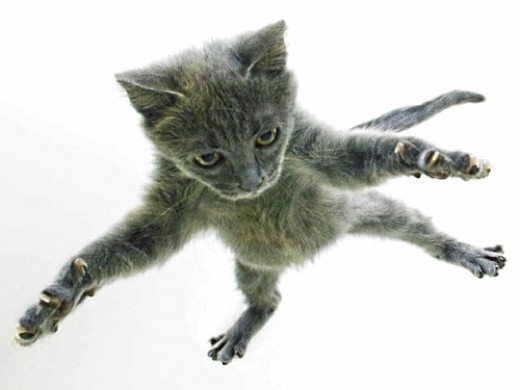 After watching a heart wrenching eight seconds of Frogger, I was excited to see the little gal make it to safety. Then, my heart dropped. I realized the guard rail she leaped over was…
After watching a heart wrenching eight seconds of Frogger, I was excited to see the little gal make it to safety. Then, my heart dropped. I realized the guard rail she leaped over was…
…on a bridge that led to a busy highway some fifty feet below. #thiscatonlyhadonelife
I’ve had a few days to process this disturbing scene and came away with some thoughts that apply to our human experience:
Sometimes we make really poor decisions because we are lost, scared and unaware of their consequences.
As I look back at my life at some of the poor decisions I have made, the worst moments were often made when I was emotionally or spiritually scrambling. Like the kitten, I was standing in the middle of oncoming relational traffic and simply trying to survive. I moved right or left – not because they were the best places to go but simply because it avoided me getting run over from the particular truck I was facing at the moment. In such a chaotic state, ones thinking is clouded and it’s almost impossible to know the impact of your decisions – especially on those who love and depend on you. This cat was stuck in a physically lethal rut. Many times, we find ourselves in emotional ones.
I’m not sure what enticed the cat to run into oncoming traffic. Maybe it was a blind mouse? Perhaps it was spooked by something else and that seemed like the best decision in the moment? Sometimes it takes situations like these for clarity to kick in. From that point on, this kitten found herself in over her head and doing her best to survive. She wanted help but had no idea where to get it. Can you relate?
You’ve seen this scenario before, maybe not with cats but people;
- The homeless man begging for food.
- The divorced Mom looking for love in all the wrong places.
- The young professional who escapes to porn.
- The alcoholic step-Dad with an anger issue.
- The teenage girl who cuts herself.
- The church leader who drinks more than he prays.
Regardless of age or gender, we see hurting people all the time just trying to survive their particular pain and their choice of survival seems counter-productive, if not self-destructive. Relationships and trust are damaged in these dangerous environments.
As I have surveyed the landscape of hurting people, I have noticed two things to be true.
One, we tend to judge those who sin differently than us. It’s easy to condemn pornography when you struggle with gluttony. It’s effortless to throw a moral stone at an adulterer when your darling sin is cursing. As long as you find a vice in another that makes your vice look less menacing, you perpetuate a wrong attitude toward those who are just as sinful as you, just struggling with a different sin.
Last week, I was sitting in my buddy’s truck at a red light. A few seconds later we heard a horrible crash outside my passenger window and saw three cars next to ours involved in a pile up at the light. Instantly, I jumped out of his vehicle and ran over to the cars involved, two of which had their airbags deployed and clearly had drivers in need of medical attention. As I attended the scene as the first person on site, I didn’t ask who was responsible. I didn’t try to figure out fault. That needed to come later from someone more qualified than myself. My job was simply to help the hurting.
This brings me to my second point:
We seem to have more compassion for those in a physical mess and less sympathy for those in a moral one. We naturally want to help a cute kitten in traffic. They deserve to be rescued. As for the home wreckers, they simply need to be hung. When someone is in a car accident, we suspend judgment and rush to offer sympathies and aid. We don’t find out who was responsible for the wreck and determine their treatment based on that. But when the “wreck” is entirely moral or relational in nature, we will often let the instigator rot in their emotional collision. Why is that? Why are we quick to help those in physical pain but gossip, slander and withhold our assistance from those writhing in moral pain?
To be clear, I’m not trying to defend the decisions of those who make poor moral choices. I’m merely suggesting that those of us who have fallen morally have done so because we were lost, scared, and in our own pain and unaware of the inevitable consequences – as obvious as they may be. Perhaps it is because we cannot understand their sin therefore it’s easier to judge it?
And this leads me to the second lesson of the fallen cat:
Oftentimes, all we need is someone (on the outside) willing to help us find our way home.
The cat, almost immediately, needed help. She knew she was in trouble. She knew she needed assistance. If only she had someone on the outside in a position to help her, she would still be with us today. Most anyone would “jump in” to help a struggling kitten but we are less likely to offer the same enthusiasm to help a stranger in need, especially if their need is self-inflicted. We are even more reluctant to help someone who sins egregiously because they “deserve whatever comes to them.” Instead of realizing “there but by the grace of God go I” – we quickly climb our shaky moral ladder to the ivory tower of pride and throw as many stones as we can at those who desperately need support.
How does a homeless man get a second chance? How do people recover from an addiction? How does a divorced person rebound from a broken family? How does someone who’s been evicted find housing again? Usually only with help. Like the cat on the street, they aren’t going to make it without some assistance.
You know what I didn’t see that day? A bunch of other cats on the curb condemning their feline counterpart. The kitten’s parents weren’t there meowing their disapproval at the cat’s poor decision. The cat’s neighbors, siblings or “friends” were not there hissing at the cat’s predicament. Apparently only we do that. Had the cat family been there to witness it, they would have done anything they could to save the life of their feline. And once she was safe, on the curb, they would have licked her wounds and nurtured her back to health.
Sadly, we rarely do that. We like to give lectures. We like to point out the mistakes. We enjoy making others feel bad for the wrong decisions they make. We revel in the “I told you so” moments – especially when our advice is revealed as wise. But is that what is really needed? Can a lecture bring healing like a hug can? Does pointing out the mistakes create the “aha” moment, or do “aha” moments more frequently come with grace?
Years ago, I had a close friend who confessed to me, in a moment of transparency – a moral failure he had experienced with his (at the time) girlfriend. As a fellow Christian and youth worker, I was shocked that he had fallen into such sin. I couldn’t believe he didn’t keep a higher sexual standard. I was disappointed in his lack of self control and repeated nature of the offense and let him know so. I tried to be compassionate but truthfully, it felt manufactured. In case he didn’t feel bad enough for his mistake, I felt the moral obligation to let him know my disappointment. Looking back, I felt it was my duty to express moral outrage and God’s displeasure. I handled it all wrong.
Fast forward 20 years. I was now the one in the position to confess. I needed to come clean about the double life I had been living, while in the ministry, and share my sins with this dear brother in the faith. I fully deserved a verbal lashing. I was completely expecting him to throw the first stone at me. In fact, to save time – he could have just used the one I hit him with some two decades earlier. I braced myself for judgment, however, it never came. Instead, of feeling the guilitine, I felt grace. Instead of condemnation, he offered compassion. I can’t even begin to tell you how healing that was for me. It didn’t excuse my behavior. He didn’t condone my actions. It didn’t remove any consequences. But he did something that day that lectures and sermons and ostracization just can’t do:
Bring healing.
He rolled up his sleeves and tried to help, as someone who truly understood the temptation and struggle. In doing so, he helped me come home.
Is there anything better than that? The prodigal son didn’t think so (Luke 15). After years of poor decisions and reckless choices, he came back to the only place that ever truly loved him:
Home.
And what was waiting for him?
- A lecture? Nope.
- A cold shoulder? Nope.
- Harsh treatment? Nope.
- A long list of things he had to do to get back in good standing? Nope.
He was greeted with a hug. And given clean clothes and a huge party and a second chance.
Who does that?
Someone who understands what it’s like to be in the middle of rush hour traffic without a prayer.
For those of you out there who relate to the cat, this message is for you:
Come home.
It’s time.
1 I lift up my eyes to the mountains—where does my help come from?
2 My help comes from the Lord, the Maker of heaven and earth. 3 He will not let your foot slip – he who watches over you will not slumber; 4 indeed, he who watches over Israel will neither slumber nor sleep. 5 The Lord watches over you—the Lord is your shade at your right hand; 6 the sun will not harm you by day, nor the moon by night. 7 The Lord will keep you from all harm—he will watch over your life; 8 the Lord will watch over your coming and going both now and forevermore.” – Psalm 121
